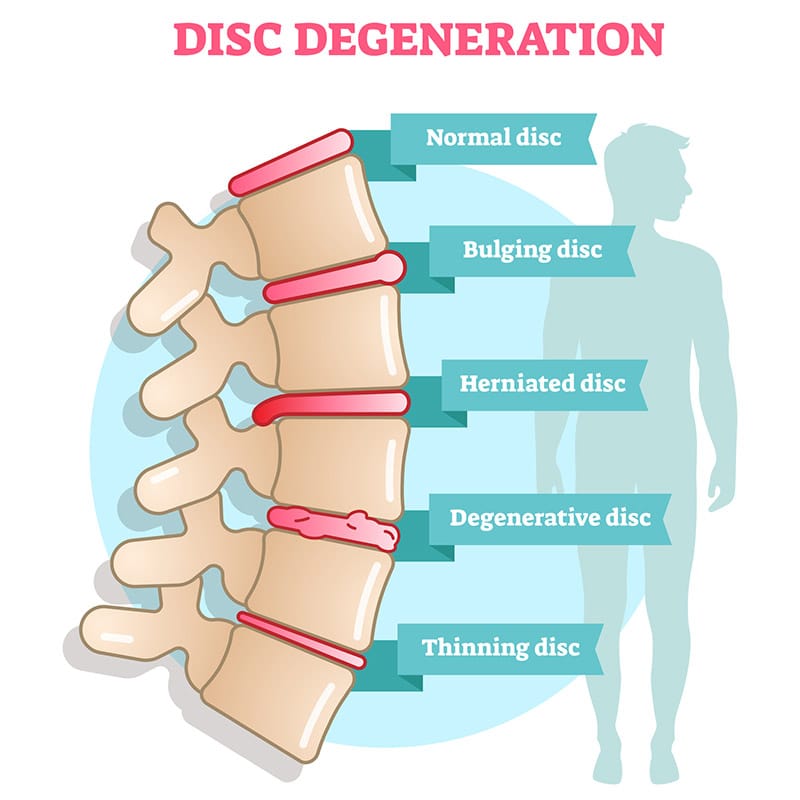What Are the Symptoms of Degenerative Disc Disease?
If you experience pain that flares up during physical activity and then recedes to low-grade pain or disappears after rest, you may have degenerative disc disease. Severe episodes of back or neck pain are also symptoms of degenerative disc disease. These episodes may last for days or months but will then return to a baseline of chronic pain for that person.
The degree of pain for people with degenerative disc disease is not consistent. Some will experience no pain or only mild discomfort, while others will experience major periods of intense pain.






